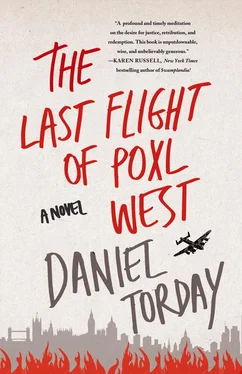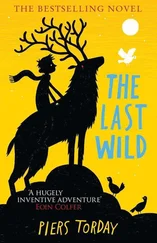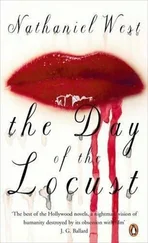I put my face into my pillow and my mother rubbed my back until I fell asleep.
Later that night, after she left my room, I woke up in the dirty evening dark. Some light crept in under my closed door. My clothes were still on. I got up and put the light on to undress for my night’s sleep. But before I did, I put my copy of Skylock on my bookshelf between a couple of X-Men collections.
The pain of a response like the one the world had to my uncle Poxl’s lies brings with it an imperceptible vacuum. Descent from fame bares no bluster to match the bluster of its ascent.
There is only nothing.
As I say, my parents didn’t hear from Poxl in the weeks after the revelation of his improprieties, his confession. He didn’t call on us. He’d come to our house unannounced during the Super Bowl only months earlier, and that was how my uncle Poxl so often came.
Unannounced.
There is no announcement of absence. It’s just that: absence. Days passed. All events were nonevents. I didn’t go to see musicals at the Wang Center. I had nothing to write poetry about. At Brandeis there was a performance of King Lear. I didn’t even think of attending. Occasionally I would see advertisements in the Globe for a performance of Tosca or the Bach solo cello suite performed by Yo-Yo Ma — my parents swore off their subscription to the Times around the time they swore off my uncle, or he swore them off; I didn’t know which — and a strange open feeling would buzz and whir in the balls of my feet.
But there was no one to take me to any of these events. When he wasn’t working on the weekends billing his hours, my father and I made trips out to Mr. Big Toyland for baseball cards, or I played flag football in the backyard with my friends, but it didn’t feel like a replacement. It wasn’t a replacement for what was missing. Just some other thing.
Truth was, I didn’t think I cared much back then for the opera or Shakespeare or the symphony. I would much better have liked a trip to Fenway or Foxboro.
I just liked going to Cabot’s for sundaes with my big, handsome, red Uncle Poxl.
What I did have were my Hebrew lessons at Beth-El, which continued even into the summer, though class met less frequently. A few weeks after The New York Times article appeared, I sought Rabbi Ben out in the hour before our class. He’d long had a standing period before his class that he called “Rap Time,” a time when his students could come talk with him about anything they wanted.
I may have been the first student ever to go see him — and now for the second time. He had on huge headphones like the guy in the Maxell cassette advertisements. I had to say his name three times before he turned around.
“Oh shit,” he said. “I mean, oh.” He took off the headphones and pointed to the burlap-upholstered chair in front of his desk. “Have a seat, my man,” he said.
Even when I’d come to see him that previous time, after class, I hadn’t really looked around his office. I’d been so focused on Poxl, I hadn’t seen anything in front of me for months. Now here I was. On the wall behind his desk he had both a Grateful Dead poster (Oakland Coliseum, 1976) and a photo of an unremarkable bald old Ashkenazi Jew with oversized ears and large dark eyes. He saw me looking at both. “The show was the first I ever went to,” Rabbi Ben said. “Sick Jerry solo on ‘Dark Star’ that night.” I just looked at him. “The dude on the right, that’s Gershom Scholem. Wrote my dissertation on Kabbalah on him, you know.”
I knew.
“I know you know,” Rabbi Ben said. “Just didn’t want to assume. Did you ever get a chance to check out those books I sent you home with last time?”
“I didn’t,” I said. Where in the past I might have lied, found a way to say something broad about them, this was a new time in my life as a teenager. There were many things I wanted, and to tell so much as a single white lie was not one of them.
We both sat in silence for a second.
“So now I will do some assuming. You’re not here to talk about Kabbalah. You’re not here to talk about those books I lent you. You’re not even here to talk about your crush on Rachel Rothstein.” What was there to say to that? “You’re here to talk about your uncle,” Rabbi Ben said. “Poxl West.”
“I guess I am,” I said. “I guess you heard.”
“Hard to miss on the ‘Arts’ page of the Times, ” Rabbi Ben said. “How you feeling?”
It was a simple question, but one I was unprepared to answer. I didn’t have any answers then, and I’m not sure I have any answers now, decades later. Just questions.
“What’s the worst of it, my man?” Rabbi Ben said. “That now Rachel Rothstein will stop paying attention again?”
“What the—” I said, and hoped he’d drop it.
“Okay, sorry,” he said. “I mean, I know you know I see you looking at her. And I saw the way she looked at you when we were talking about your uncle. She even told me she’d read the book.”
“She did?”
“She said she did. She might even have said she liked it. Although I got the feeling from talking to her that she was not so impressed by the way he wrote about having left that woman in Holland. I know how much you care about your uncle’s heroism. But seems possible a reader like Rachel might not be so impressed by all of what he did. All of which might not matter so much anymore.”
“Jesus,” I said.
For a minute, neither of us said anything more.
“Okay, let me try it this way,” Rabbi Ben said. There was a kind of seriousness on his face I’d not observed in him before. The skin was bunched above his hirsute brow. I could see that the smirk I often had seen in his eyes was somehow absent. “How did you feel before you learned about it?”
“Good,” I said. “Proud. I mean, the guy was my uncle. He was, you know, he might as well have been my grandfather, for what he meant to my family. He’d read me all those stories before they ever even appeared in the book, and now…”
“Now what?”
“Now he’s a fraud.”
“Well, is he? I don’t know any of this anywhere near as much as you do, but I read all about it. I read the book. But in terms of what he’s been accused of, what did he really do wrong?”
“He didn’t fly that sortie over Hamburg he said he did.” I could see a flinch of smile reappear in Rabbi Ben’s eyes when I said “sortie.” “Flight,” I said. “He didn’t fly that bombing run.”
“But he was telling a story, right? Honestly, I don’t see what’s so wrong with it. He confessed to his error. Book’s still mostly true, I’d say. He’s led an amazing life and told it well.”
“I was basically bragging about him for months,” I said before I had time not to. “I said I was gonna bring him to talk to our Hebrew class.”
“And if you had, I’m sure he would’ve been great. Will be. Why don’t you invite him?”
“Still?” I said.
“Anytime. Listen, I know you don’t care so much about Kabbalah. I know you might not have time in the next little while to read much up on it. But it’s my main jam. Thing. It’s my main thing. You know the main book of Kabbalah.”
It was called the Zohar, I said. I’d listened to him enough to know.
“It was written by this thirteenth-century Spanish Jew named Moses de Léon. Moses de Léon went into his study every day and came out every week with new material about the Ein Sof, about the Sefirot — the main tenets of Jewish mysticism. He would bring them out, read them to his friends. When people asked him where it came from, he said he was translating an ancient Aramaic text. Claimed he went back to his study every day and translated a little more. But you know where he got it?”
Читать дальше












